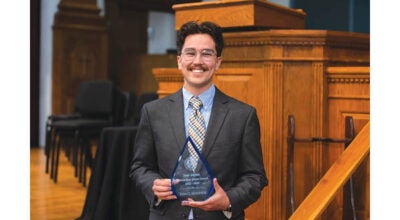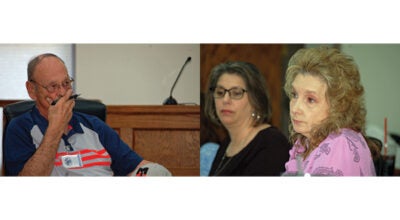Southern Baptists pick president who worked for racial unity
Published 2:22 pm Wednesday, June 16, 2021
|
Getting your Trinity Audio player ready...
|
NASHVILLE (AP) — The Southern Baptist Convention tamped down a push from the right at its largest meeting in decades on Tuesday, electing a new president who has worked to bridge racial divides in the church and defeating an effort to make an issue of critical race theory.
Ed Litton, a pastor from Alabama, won 52% of the vote in a runoff against Mike Stone, a Georgia pastor backed by a new group called the Conservative Baptist Network that has sought to move the already-conservative denomination further right.
Litton, who is white, was nominated by Fred Luter, the only Black pastor to serve as president of the United States’ largest Protest denomination. Luter praised Litton’s commitment to racial reconciliation and said he has dealt compassionately with the issue of sexual abuse within SBC churches, another hot-button subject at the gathering of more than 15,000 church representatives.
Stone had campaigned aggressively, including speaking at churches across the country and even appearing on Fox & Friends on Tuesday before the vote. And the Conservative Baptist Network had encouraged supporters to come to the meeting as voting delegates.
But in the end, the message that seemed to resonate with voters was that Stone — who supported a motion to repudiate critical race theory, an academic construct for framing systemic racism that has been a target of religious and political conservatives — was a divisive choice.
“We’re a family, and at times it seems like an incredibly dysfunctional family,” Litton said after the results were announced. “But we love each other.”
Delegates rejected a proposal that would have explicitly denounced critical race theory. Instead, they approved a consensus measure that does not mention it by name but rejects any view that sees racism as rooted in “anything other than sin.”
The measure also affirmed a 1995 resolution apologizing for the history of racism in a denomination that was founded in 1845 in support of slavery and for “condoning and/or perpetuating individual and systemic racism in our lifetime.”
One white delegate urged the convention to denounce critical race theory by name, saying it held him “guilty because of the melanin content of my skin.” But another argued that the convention shouldn’t be swayed by a political movement that has already seen some state legislatures ban the teaching of the theory.
“If some people in this room were as passionate about the gospel as they are about critical race theory, we would win this world to Christ,” said James Merritt, chairman of the resolutions committee and a former convention president.
Several Black pastors have voiced frustration over critical race theory debates playing out in the SBC instead of the denomination confronting systemic racism itself.




